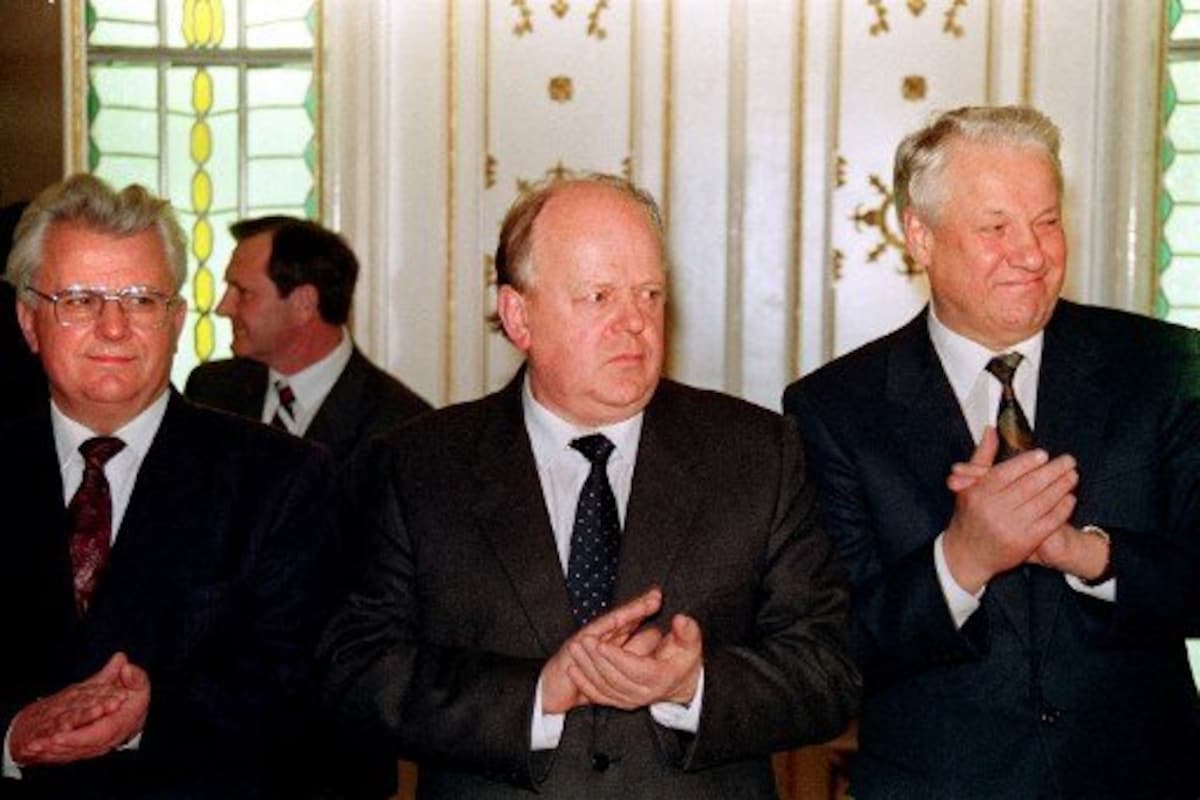Over the last two weeks, two post-Soviet leaders who were the first to lead their respective countries, have died. But strangely, the deaths of Belarus’ first head of state, Stanislau Shushkevich, and Ukraine’s first President, Leonid Kravchuk, have not been met with the same kind of patriotic outpouring that one might expect.
Indeed, Minsk’s perfunctory write-up of Shushkevich’s death did not even specify his role as the first head of state. And the obituaries for Kravchuk, who remained a fixture on Ukraine’s political scene until his death, were decidedly ambiguous, noting that although he led Ukraine to independence, he failed to build the economic or political basis for strong nationhood.
Instead, their examples demonstrate how it was not until Vladimir Putin’s repeated interference in both Belarus and Ukraine that a strong sense of nationhood took control. As such, neither have been remembered as ‘fathers of the nation’.
After all, Shushkevich and Kravchuk led their nations to independence in a bid not to break ties with the wider Soviet bloc, but to jockey for influence as the Communist Party of the Soviet Union lost its monopoly on power.
Neither Kravchuk nor Shushkevich sought a genuine break with Russia during their post-Soviet leadership. Together with Yeltsin, the three hammered out the Belazheva Accords, confirming the dissolution of the Soviet Union, but this did not mean that the two leaders wanted to escape from the Soviet sphere of influence — a feeling shared by 71.5% of Ukrainians, who wanted to remain in the bloc.
In fact, this position was widely held — even US President George H.W Bush (in)famously advised against outright independence, warning “freedom is not the same as independence” and tacitly backing a continued post-Soviet federation’. After all, Belarus, Ukraine and Russia were home to the USSR’s most developed industries, bountiful farmlands, and bulk of the population. The USSR’s death did not have to mean the death of a greater Eurasia, or even make it desirable.
In fact, both leaders would lose elections to more pro-Russian candidates in 1994, but their brief rules proved that Ukrainian and Belarusian nationalism was not in itself anti-Russian.
It was not until Putin intervened in the 2004 Ukrainian elections against a pro-Russian party that Kravchuk was aligned with that the seeds of a truly independent Ukrainian nation were born. The intervention deepened Ukraine’s internal divides but also saw pro-Western, and explicitly pro-Ukrainian, activists and youth take to the streets.
Nearly 10 years, later, Ukrainians revolted again when Putin’s preferred proved irredeemably corrupt and abandoned efforts to agree a trade deal with the EU. Putin’s invasion and annexation of Crimea ensured there would be no turning back.
In Belarus, Putin laid the groundwork for another backlash with his 2020 intervention in the country, sparking a sustained government-in-exile under Svitlana Tsikhanouskaya and motivating some Belarusians to volunteer to fight alongside Ukrainians.
The signees of the Soviet Union’s death warrant have now themselves all passed. But the man who is really killing-off the potential for a greater Russia or greater Eurasia to ever re-emerge lives on in the Kremlin. Vladimir Putin may yet prove to be the true father of Ukrainian and Belarusian nationalism.










Join the discussion
Join like minded readers that support our journalism by becoming a paid subscriber
To join the discussion in the comments, become a paid subscriber.
Join like minded readers that support our journalism, read unlimited articles and enjoy other subscriber-only benefits.
Subscribe